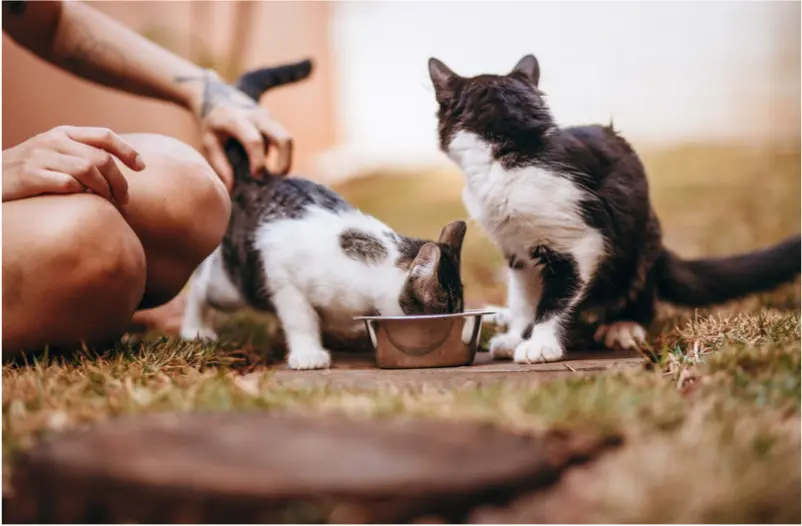If you have a cat that seems to be always hungry, you might wonder if there is something wrong with your furry friend. Cats are naturally curious and playful animals, and they may beg for food out of boredom or habit. However, sometimes excessive hunger can be a sign of a health problem or a dietary deficiency. In this blog post, we will explore some of the possible causes of why your cat is always hungry, and what you can do to help them.
Some of the common reasons why your cat may be always hungry are:
– Age: As cats get older, they may lose some of their ability to digest and absorb nutrients, which can make them feel hungrier. They may also have a lower metabolism and burn fewer calories, which can lead to weight gain. To prevent obesity and malnutrition, you should feed your senior cat a high-quality diet that is specially formulated for their age and activity level. You should also consult your vet about how much and how often to feed your cat, and monitor their weight and body condition regularly.
– Parasites: Parasites such as worms, fleas, or mites can infest your cat’s body and consume their blood or nutrients, which can make them feel hungry all the time. Parasites can also cause other symptoms such as diarrhea, vomiting, itching, or hair loss. To prevent and treat parasites, you should deworm your cat regularly and use a flea and tick preventive product as recommended by your vet. You should also keep your cat’s environment clean and avoid contact with stray or infected animals.
– Diabetes: Diabetes is a condition where your cat’s body cannot produce or use insulin properly, which is a hormone that regulates blood sugar levels. This can cause your cat’s blood sugar to fluctuate and make them feel hungry constantly. Diabetes can also cause other symptoms such as increased thirst, urination, weight loss, or lethargy. To diagnose and treat diabetes, you should take your cat to the vet for a blood test and follow their instructions on how to manage your cat’s condition with medication, diet, and exercise.
– Hyperthyroidism: Hyperthyroidism is a condition where your cat’s thyroid gland produces too much thyroid hormone, which can speed up their metabolism and make them burn more calories than they consume. This can make your cat feel hungry all the time, even if they eat more than usual. Hyperthyroidism can also cause other symptoms such as weight loss, increased heart rate, nervousness, or vomiting. To diagnose and treat hyperthyroidism, you should take your cat to the vet for a blood test and follow their instructions on how to control your cat’s thyroid levels with medication, surgery, or radioactive iodine therapy.
– Food quality: The quality of the food you feed your cat can also affect their appetite and hunger levels. If you feed your cat a low-quality food that is high in fillers, carbohydrates, or artificial ingredients, they may not get enough protein, fat, vitamins, or minerals that they need for their health and well-being. This can make them feel unsatisfied and hungry after eating. To provide your cat with a balanced and nutritious diet, you should feed them a high-quality food that is rich in animal protein, healthy fats, and natural ingredients. You should also avoid feeding your cat human food or table scraps that may contain harmful substances or cause digestive problems.
Cats are naturally curious and playful animals, and they may beg for food out of boredom or habit.




